Archives
-
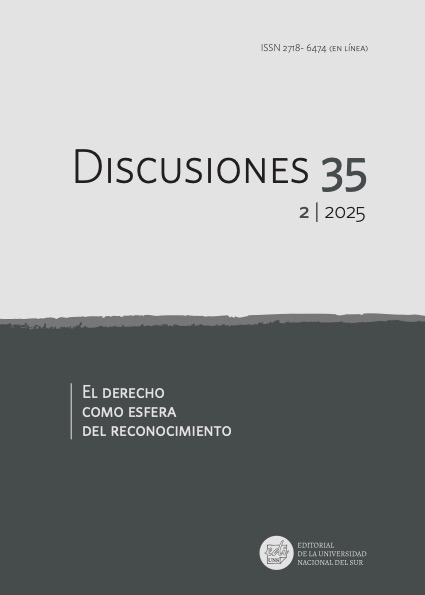
Law as a Sphere of Recognition
Vol. 35 No. 2 (2025)This issue brings together three thinkers—Santiago Roggerone (Argentina), Mauro Basaure (Chile), and Luciana Alvarez (Argentina)—to analyze Honneth's notion of recognition in its connection to law and justice within a regional context. The questions guiding their contributions are: Why is it relevant to address the work of Axel Honneth and his conception of law? How does his theory of recognition contribute to understanding the impact of current social, cultural and political transformation in the legal domain?
-
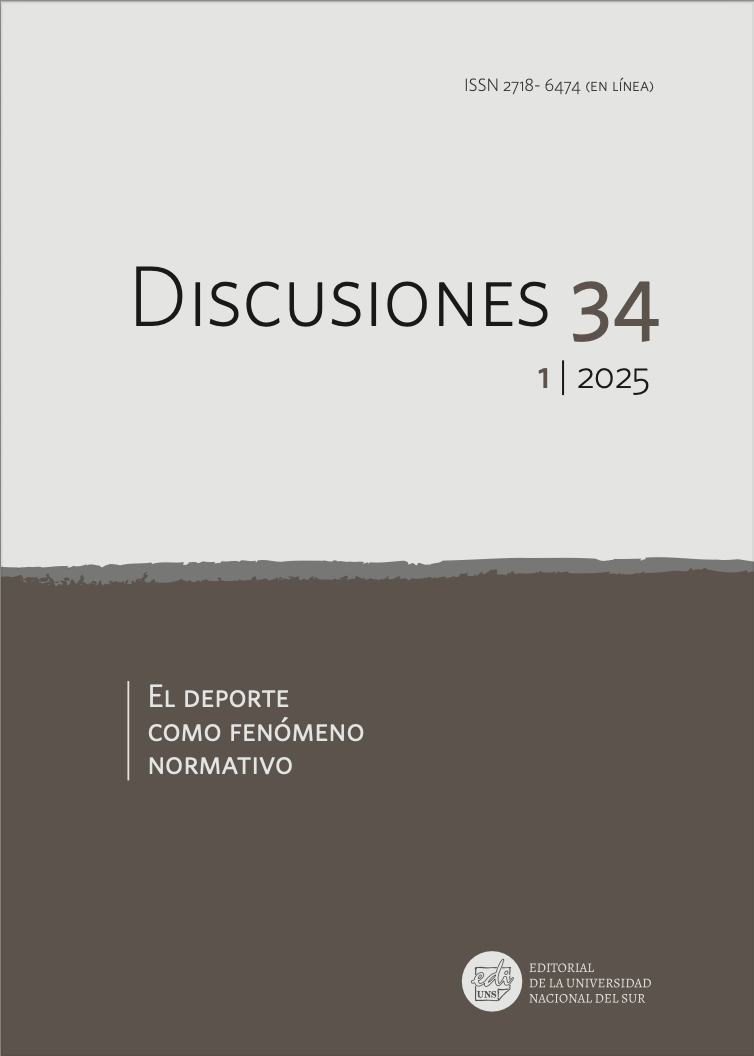
Sport as a Normative Phenomenon
Vol. 34 No. 1 (2025)The concern to offer a characterization of the phenomenon of sport that adequately considers its normative components is a recurrent issue in the philosophy of sport. This volume, introduced by Consuelo Reyes Crisóstomo, offers a debate on the concept and Hartian characterization of sport proposed by José Luis Pérez Triviño. Alba Lojo, Francisco López Frías, Alfonso García Figueroa, and Filip Kobiela discuss different aspects of his proposal: the institutionalized nature of sport, the rules that define and regulate it, and the different theses that underlie the conception of sport proposed by the author, among others.
-
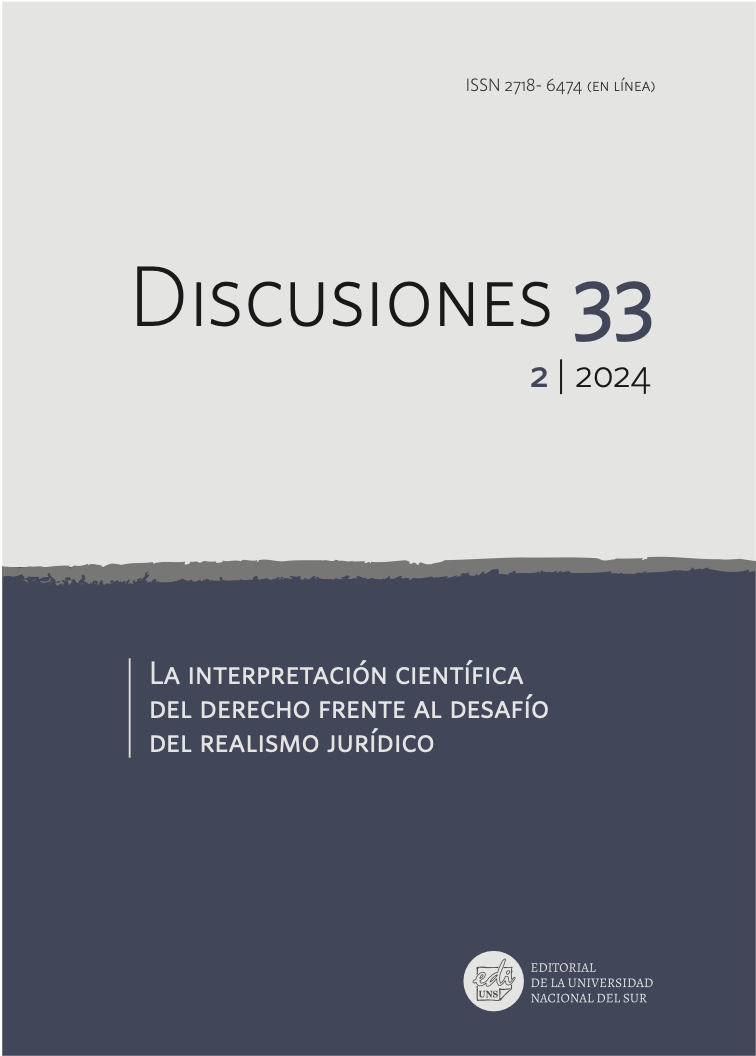
The Scientific Interpretation of Law and the Challenge of Legal Realism
Vol. 33 No. 2 (2024)In this issue, introduced by Thomas Acar, Thomas Hochmann proposes a conception of the scientific interpretation of law as a way to respond to the skeptical challenge coming from legal realism, with special emphasis on the version defended by French authors. Thus, Hochmann seeks to offer a refutation of Michel Troper's theory of legal interpretation, proposing an alternative conception. This gives rise to a series of responses advanced by Véronique Champeil-Desplats, Eric Millard, Arnaud Le Pillouer, and Michel Troper himself.
-
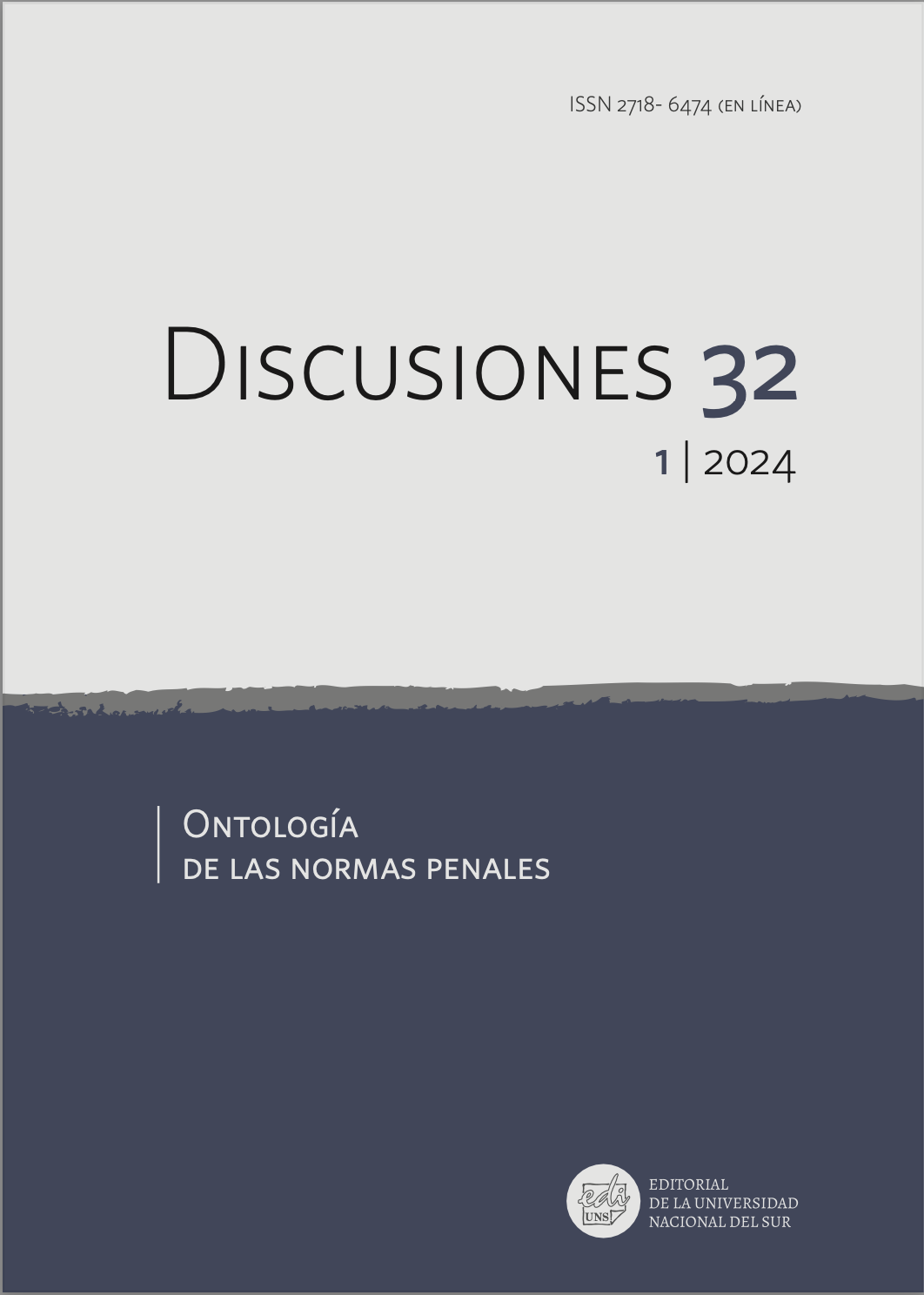
On the Ontology of Criminal Norms
Vol. 32 No. 1 (2024)This issue offers a dialogue between criminal law and legal theory. In particular, the debate shows how the explicit adoption of a certain conceptual instrument from the theory of law, namely, a particular theory of norms, has important consequences for the understanding of our punitive practices and for shedding light on fundamental questions of Criminal Law theory that are still controversial. Juan Pablo Mañalich writes the main text, while Inês Godinho, María Beatriz Arriagada, and Jorge Rodriguez write the comments. The debate is introduced by Alejandra Olave.
-
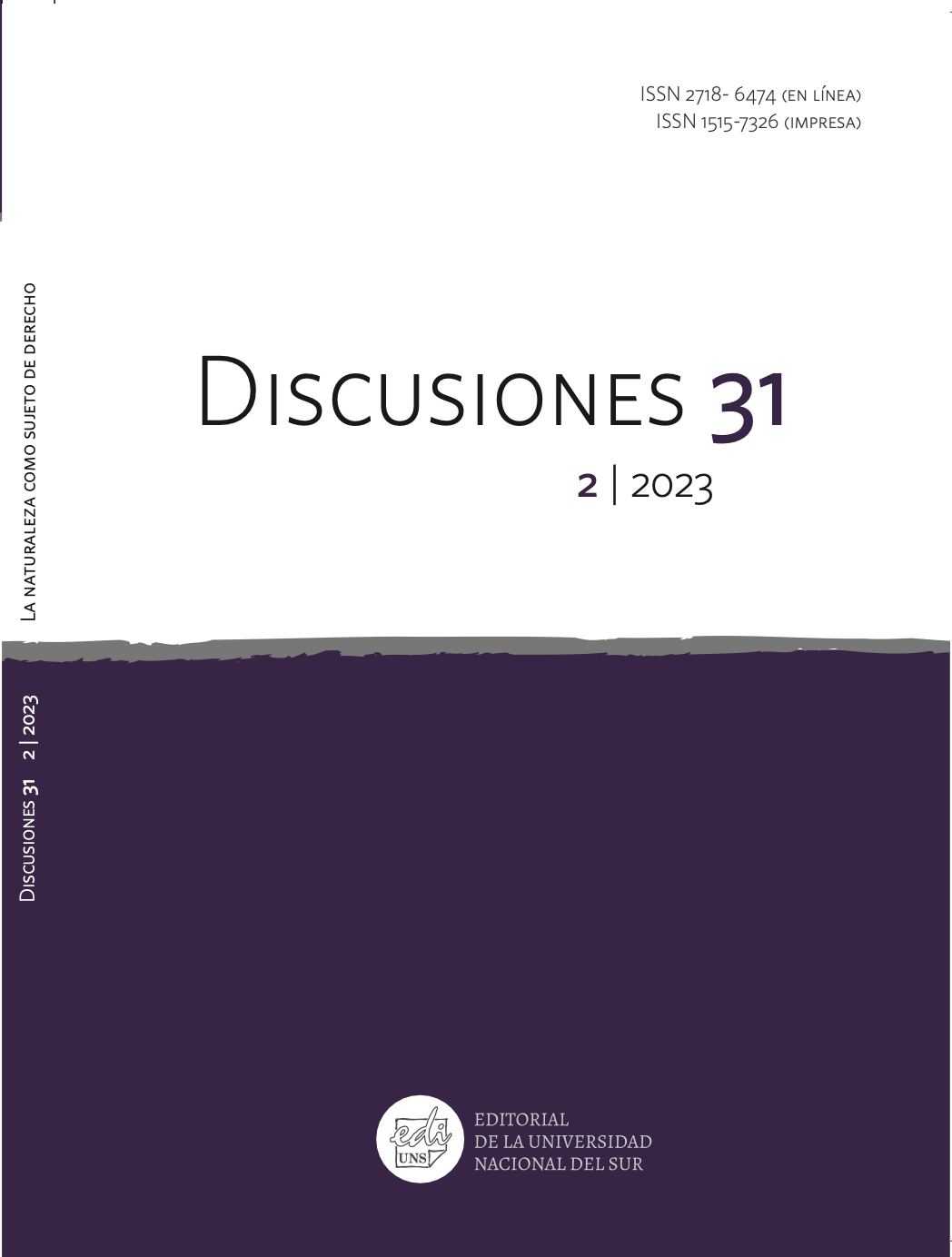
Nature as a Subject of Rights
Vol. 31 No. 2 (2023)From different perspectives and languages, attempts are currently being made to think and outline strategies to confront the socioecological crisis. In this issue, whose guest editor is Marianela Galanzino, this crisis will be addressed based on contributions from specific fields, such as the Rights of Nature, New Latin American Constitutionalism, Expanded Communicative Ethics, among others. In the main text, Valeria Berros indicates that, from the legal field, the Rights of Nature approach is gaining strength, with the intention of redefining otherness. Notwithstanding the disagreements it produces within contemporary law, in recent decades it has become a point as central as it is resisted. The comments of Natália de Souza Lisbôa and Leandro Drivet highlight the different aspects of this challenge.
-
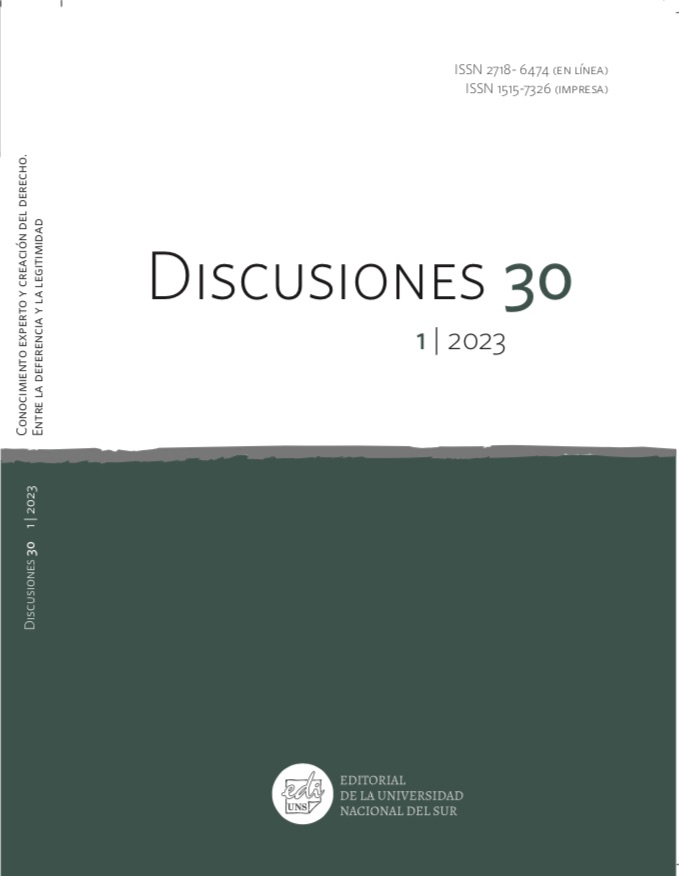
Expert Knowledge and the Creation of Law. Between Deference and Legitimacy
Vol. 30 No. 1 (2023)This number of Discussions focuses on Damiano Canale's text on the opacity of legal provisions and norms when experts are involved in their creation. In both cases, the phenomenon affects the certainty of the right and the full enjoyment of rights. Juan Iosa, Francesca Poggi and Florencia Rimoldi examine and discuss different aspects of Canale's theses.
-

The Identification of Ratio Decidendi. On Precedents and General Norms
Vol. 29 No. 2 (2022)This issue of Discussiones focuses on the theses of Álvaro Núñez Vaquero presented in the article “On the maximization of jurisprudence and precedents”. His ideas are commented on by Sandra Gómora, Luiz Guilherme Marinoni and Luca Passanante. The main point of the discussion is a specific issu regarding the use, by judges, of past judicial decisions: the implementation of institutional systems for the identification of the rationes decidendi, that is, of the general norm contained in the past decision that is relevant to the decision of future cases.
-
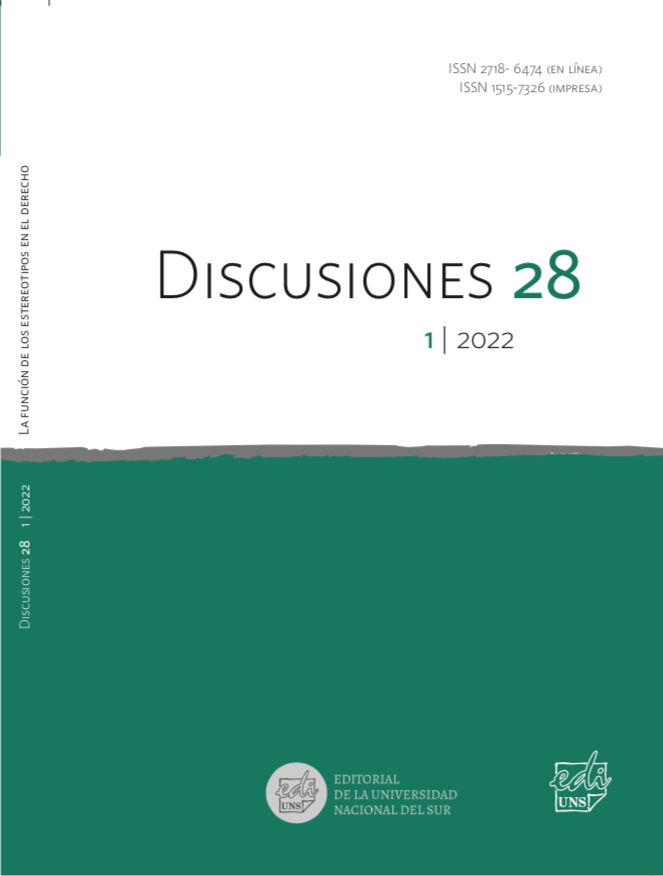
La función de los estereotipos en el derecho
Vol. 28 No. 1 (2022)The discussion is based on the article by Elena Ghidoni and Dolores Morondo Taramundi – entitled "The role of stereotypes in the forms of complex inequality: some notes from the feminist theory of anti-discrimination law". Ghidoni and Morondo's text focuses on a specific area of law: anti-discrimination law. Adopting the perspective of feminist criticism, the authors use stereotypes as a key to identifying and denouncing the limits of anti-discrimination law of a liberal form. In turn, in their comments, Lourdes Peroni and Liliana Ronconi engage in a dialogue with Ghidoni and Morondo on various aspects of their theoretical proposal, opening the way to new reflections and points of view. The debate is introduced by Paola Parolari.
-
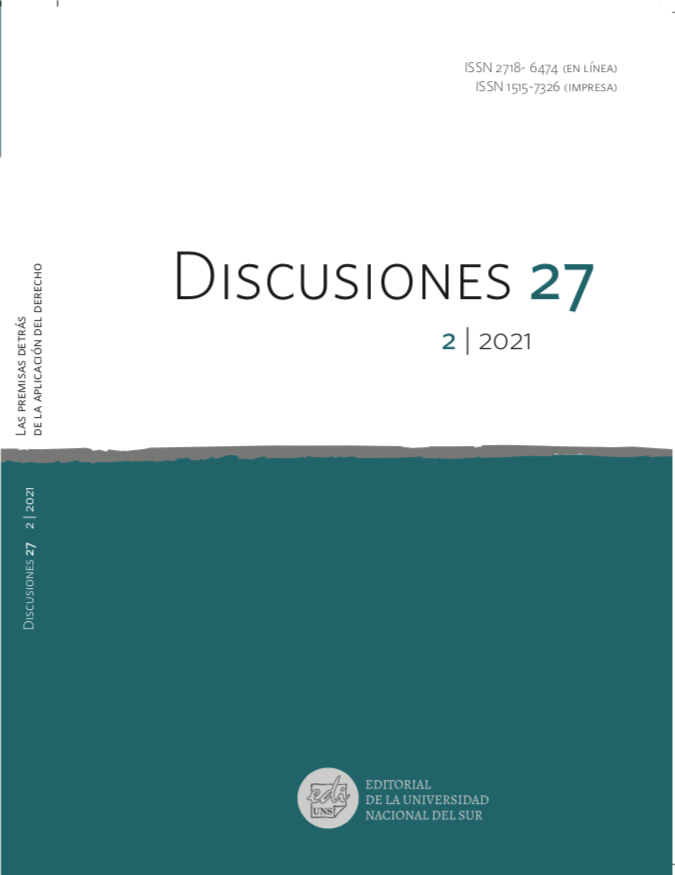
On the Premises behind the Application of Law
Vol. 27 No. 2 (2021)The article "What Is It to Apply the Law?" by Luís Duarte d'Almeida offers a theory of the application of law and a model for the justification of judicial decisions. This theory results from a critique of the traditional model of legal syllogism. The proposal is discussed by María Gabriela Scataglini, Hugo Zuleta and José Juan Moreso.
-
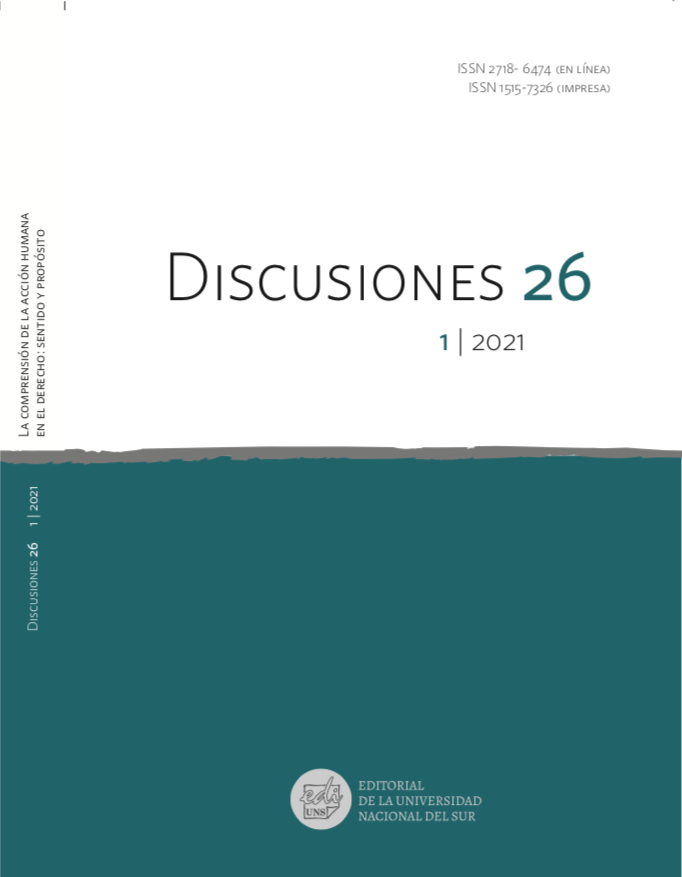
Understanding de Point of Human Action in Legal Practice
Vol. 26 No. 1 (2021)In this issue, Verónica Rodriguez Blanco analyzes the instability verdict proposed by Finnis against Hart's internal point of view. To explain why this instability arises, she proposes an argumentative strategy in a negative key, namely, showing that Hart's model of action cannot account for the meaning and purpose (point) of human actions in law.
-
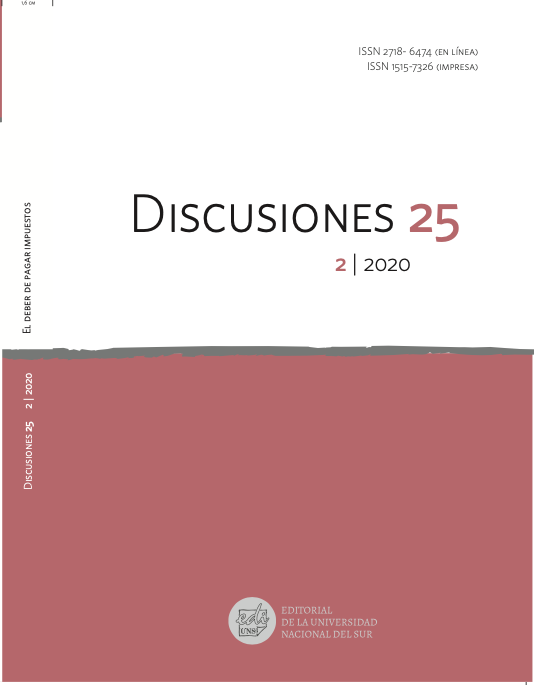
On the Duty to Pay Taxes
Vol. 25 No. 2 (2020)In the central text of this issue, Francisco Saffie addresses two central problems of contemporary Tax Law: the deficit of justification and the lack of compliance with tax duties. Starting from a critical diagnosis of the current situation, marked by the neoliberal conception, Saffie makes a proposal that he conceives as overcoming the classic paradigm of Tax Law and supported by an alternative paradigm. Eurico Diniz de Santi, Eleonora Lozano, and Hernán Bouvier sharply discuss Saffie's analysis and theses.
-
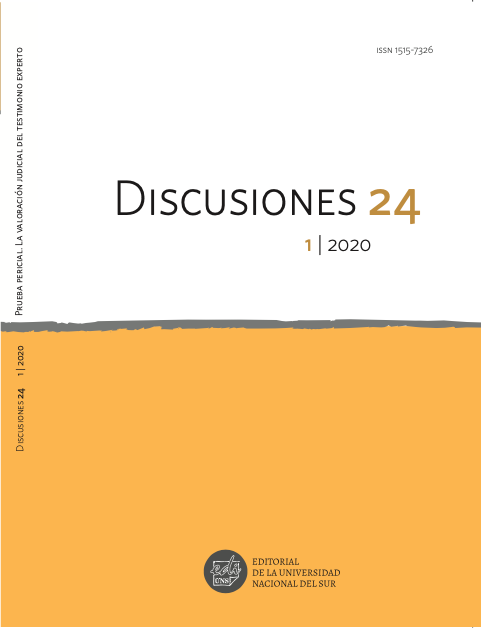
Expert Evidence. Judicial Assessment of Expert Testimony
Vol. 24 No. 1 (2020)De main section of this issue, edited by Valeria Trotti, hosts a debate between Carmen Vázquez, Florencia Rimoldi and Rachel Herdy on different basis for the justification of expert evidence.
-
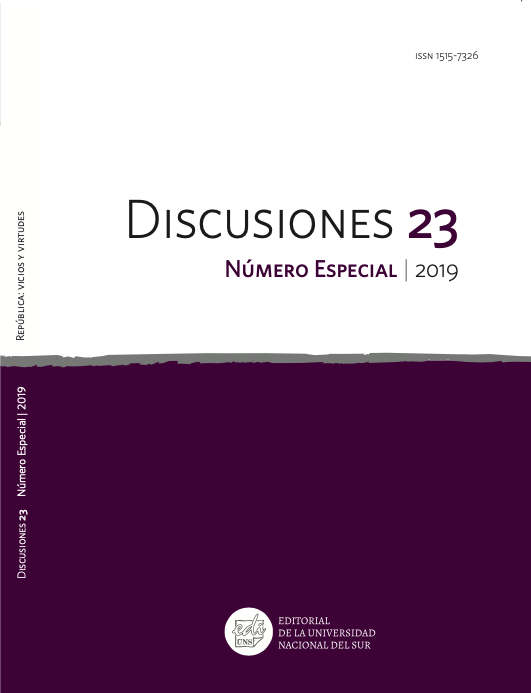
Republic: Vices and Virtues
Vol. 23 No. Especial (2019)
The book Razones Públicas, by Andrés Rosler, analyzes six concepts to understand the idea of republic and classical republicanism: freedom, virtue, debate, law and country as positive elements, and Caesarism as a negative element. The texts included in this issue of Discusiones cover a wide spectrum of topics. Emmanuel Biset explores the interaction between the history of ideas and present politics. Luciano Venezia, Romina Rekers and Matías González del Solar interrogate the classic ideal of freedom as non-domination from a liberal and neo-republican perspectives. Anna Richter conducts an examination of the role of republican virtues in today's societies. Finally, Guillermo Lariguet and Paula Hunziker address issues related to public debate, the capacity to judge and, ultimately, Caesarism. -
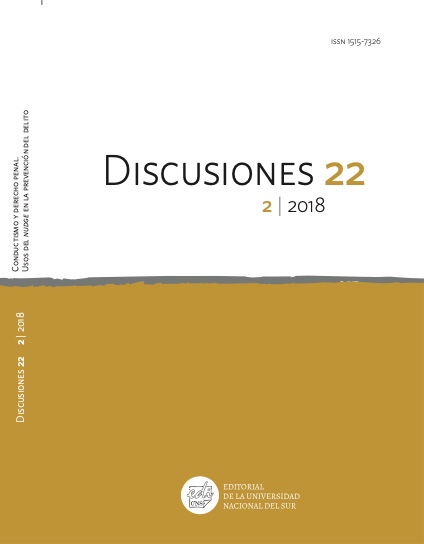
Behaviorism and Criminal Law. On the Use of Nudges for Crime Deterrence
Vol. 22 No. 2 (2018)Behavioral Law and Economics examines the relationships between law and the behavioral sciences. It accepts the premise that human behavior can be predicted; however, it replaces the traditional assumptions of rational choice theory with alternative predictions, based on well-documented behavioral phenomena. In the context of criminal law, Behavioral Law and Economics holds that the legal system should use the findings of the behavioral sciences to induce individuals to act in socially desirable ways. The authors of the main paper examine some objections to this view from both a pragmatic and principled perspective.
-
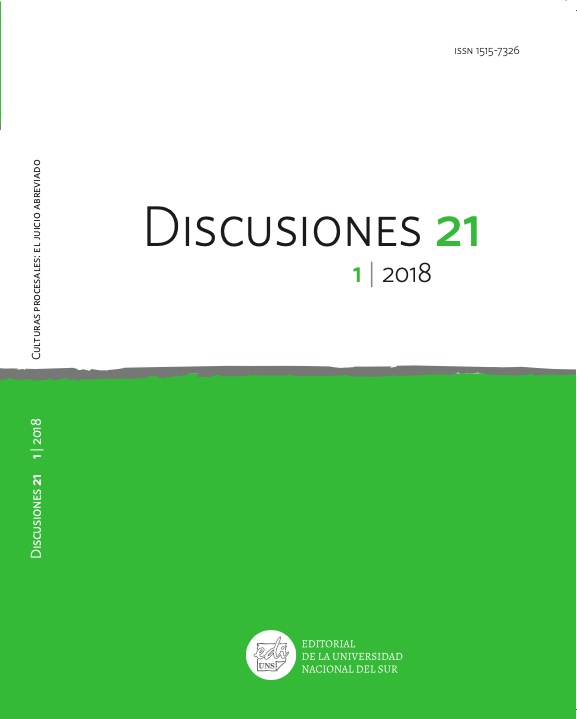
Procedural Cultures: The Plea Bargaining
Vol. 21 No. 1 (2018)The core of this debate takes us to the world of comparative law and invites us to reflect on the influences and relationships between different systems in the field of criminal procedural law. The recent adversarial reforms implemented in continental European and Latin American procedural systems suggest an “Americanization” of the criminal process in these countries. However, the author intends to refute this idea through an analysis of the way in which the American institute of plea bargaining has been introduced in four representative jurisdictions of the continental European and Latin American tradition.
-
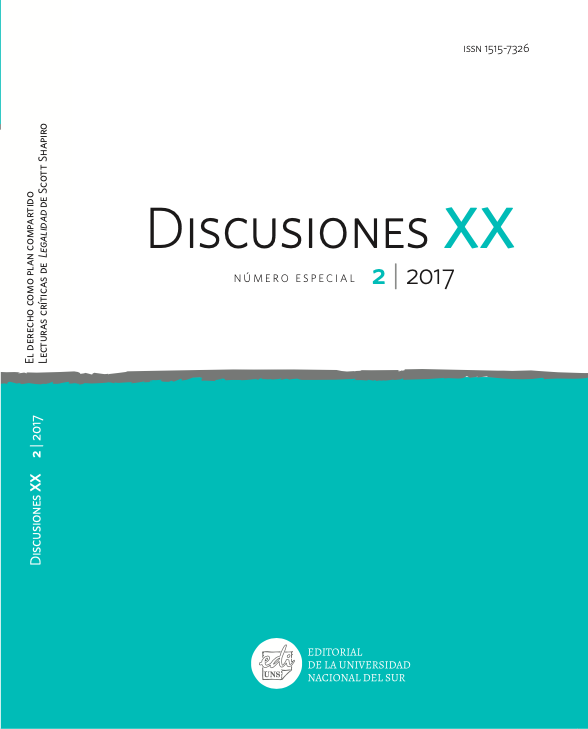
Law as Shared Plan. Critical Readings to Legality by Scott Shapiro
Vol. 20 No. 2 Especial (2017)This issue is special in many ways. In the first place, it means taking up - exceptionally and for this time - what was the initial format of this journal. Indeed, this issue does not include the Sections Cortes, Libros y Balance. However, it focuses on a critical reading of an entire book. It is close to a mix between our classic main section and our Libros section. Finally, it is the fruit of an academic discussion organized in other latitudes, with a spirit identical to the one that inspires the type of discussions that take place in Discusiones. The Editorial Board considered that given the relevance of the book, the type of discussion and the connections with the format of our issue, that reunion of thinkers deserved to be published in this special issue. Subsequent forthcoming issues will return to our usual format. We hope that readers will find this issue not only special, but also valuable.
-
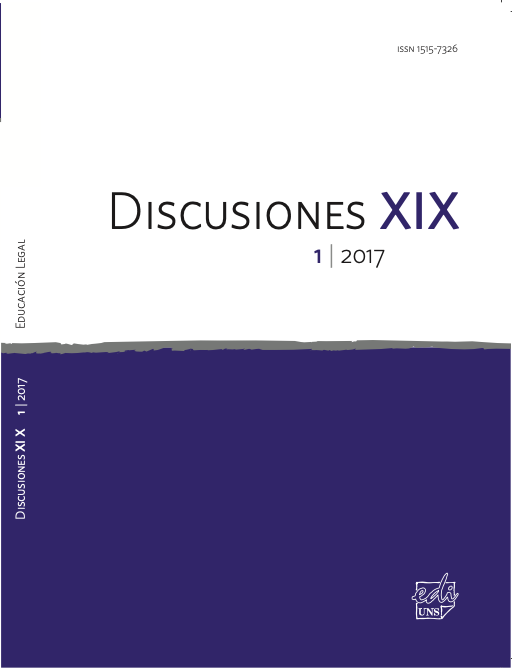
Legal teaching
Vol. 19 No. 1 (2017)Within the framework of the discussion about the relationship between law and education, this issue will revolve around three reflections introduced by the author: first, the role of law in the generation of inequality; second, the legal education of the hierarchy; and finally, the androcentric legal architecture.
-
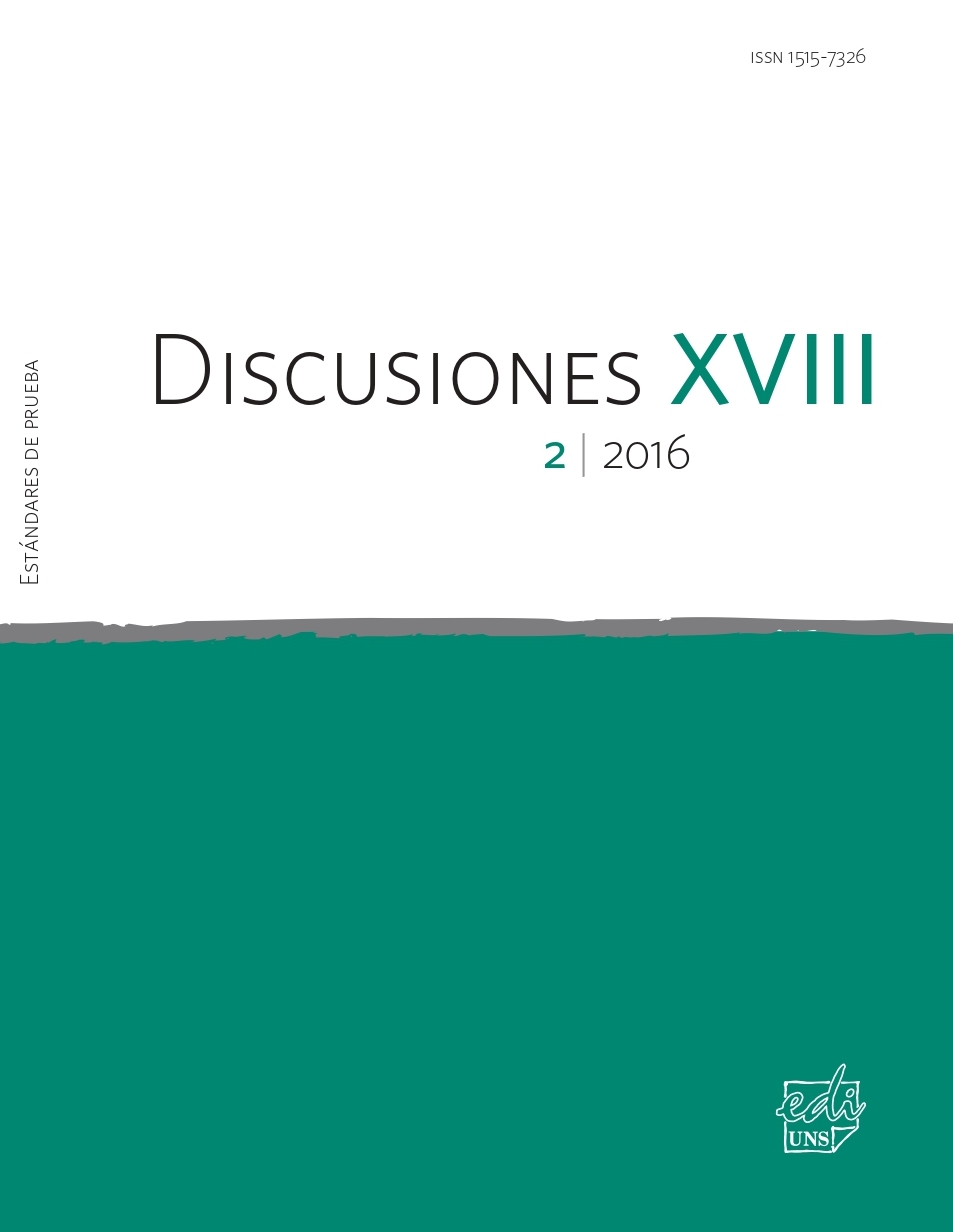
Standards of Proof
Vol. 18 No. 2 (2016)This issue discusses the logical structure and uses of Standards of Proof (SofP). Regarding the structure, the author of the main text maintains that the SofP admit being reconstructed as thresholds or prototypes. Regarding the uses, the author indicates that the EdPs are not only used to distribute false positives and false negatives --as a widely spread position maintains--, but also, they influence the number of total errors produced by the adjudication system, and even model the form that the proven facts take. The way SofP works is illustrated with an exercise that shows their status as both prototype and threshold.
-
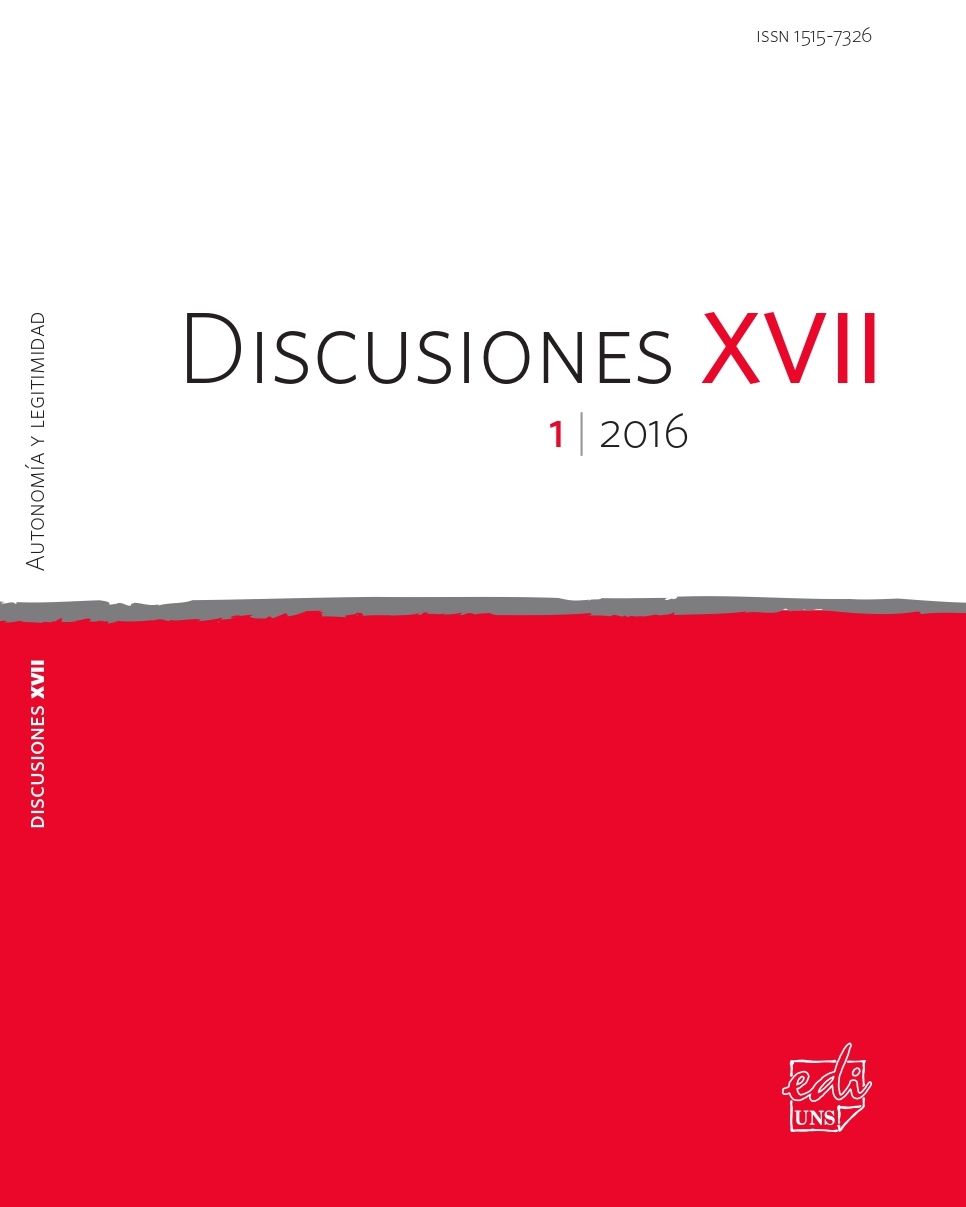
Autonomy and Legitimacy
Vol. 17 No. 1 (2016)Autonomy according to Sieckmann consists in the formation of normative judgments on the basis of the weighting of normative arguments. Through a schematic presentation of the main theses of the text and the criticisms and contributions of its commentators, the author will defend a conception that according to him allows solving the paradox of autonomy, that is, how the authors of the norms can understand themselves bound by those same norms, explaining the objective validity of the norms as a result of autonomous argumentation and reconstructing the idea of democracy as the institutionalization of autonomous argumentation.
-
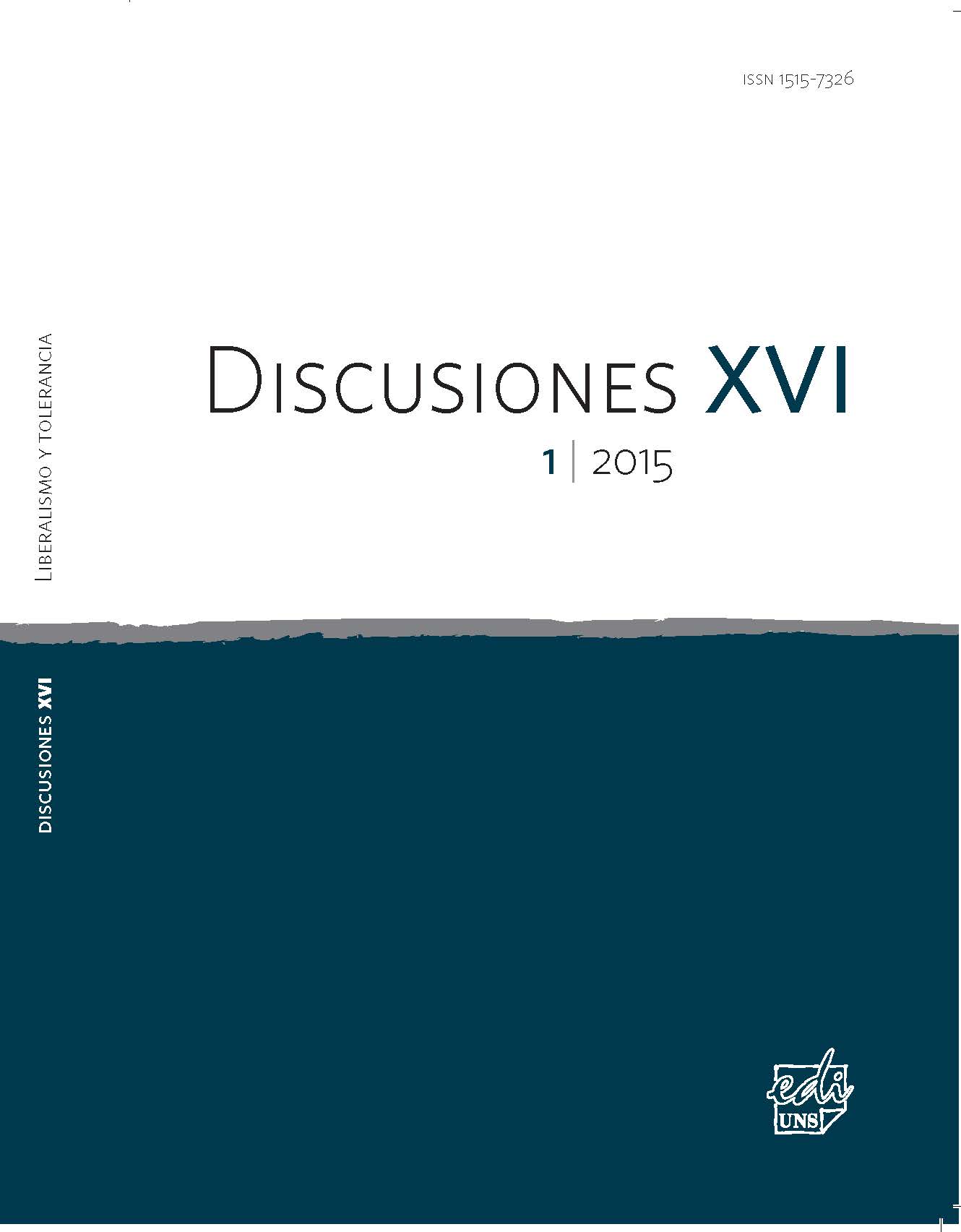
Liberalism and Tolerance
Vol. 16 No. 1 (2015)En el presente número se recoge una discusión sobre el lugar que ocupa la tolerancia en el liberalismo. En coincidencia con esto, la teoría de John Rawls ha significado la posibilidad de conciliar diferentes ideas, bajo un esquema político justo y estable entre los ciudadanos de una comunidad dividida por doctrinas religiosas, filosóficas o morales; la tolerancia será el mecanismo que contribuya a enfrentar los conflictos que se susciten. Sin embargo, asumiendo que el pluralismo subsistirá, el concepto de tolerancia ha jugado un papel central. Esta idea propone discutir René Gonzales de la Vega en “Legalismo moral y tolerancia. Crónica de una muerte anunciada”, del cual surge la preocupación de lo que significa la tolerancia para el ciudadano, esto es, el costo que suele representarle.
-
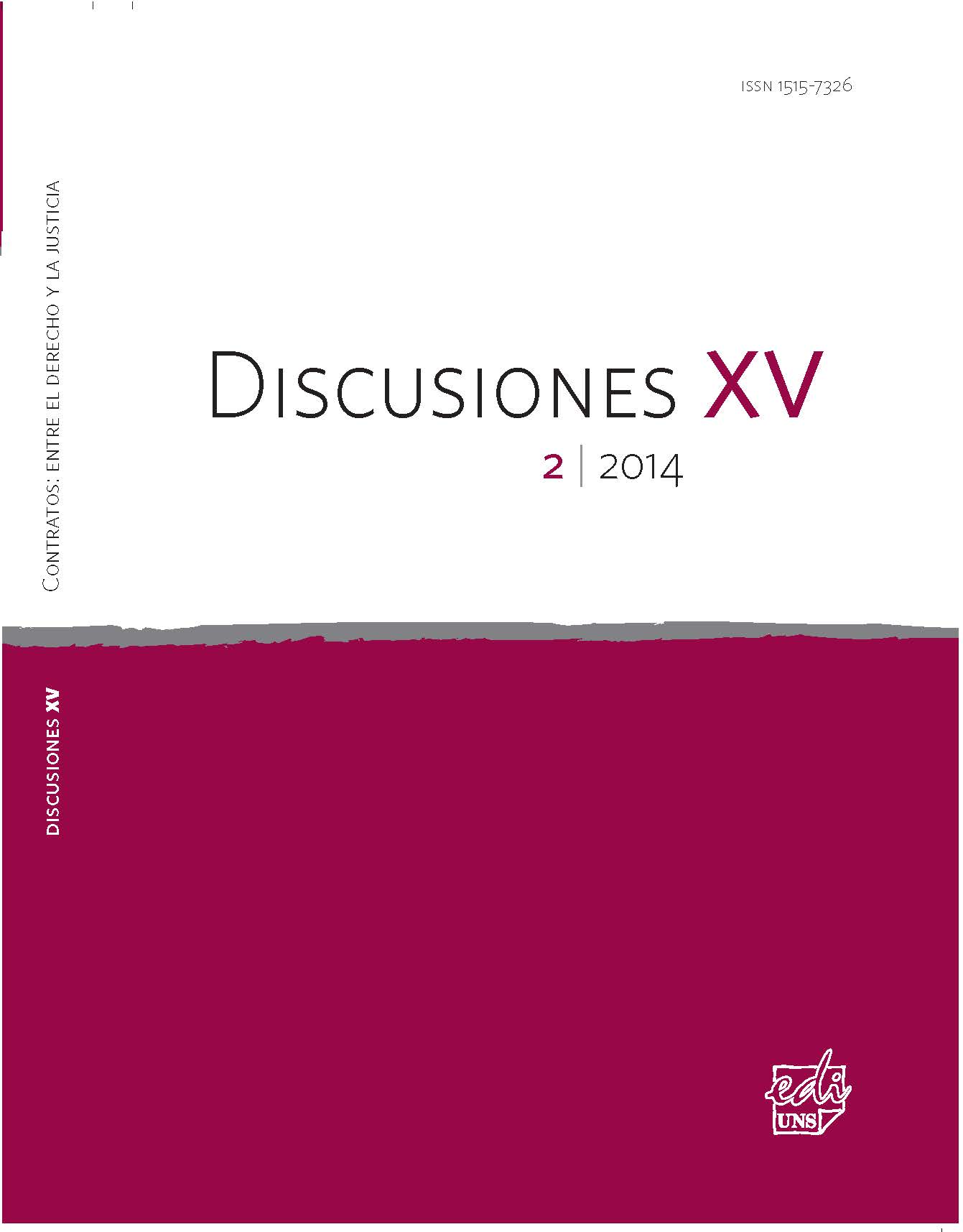
Contracts: betweeen Law and Justice
Vol. 15 No. 2 (2014)The four texts that make up this issue embark on a discussion about the best way to understand and justify Contract Law. Martín Hevia's work synthesizes the main ideas of his book Reasonableness and Responsibility, where he uses as a platform the central ideas of John Rawls on the basic organization of society and Kant's theory of contract law.
-
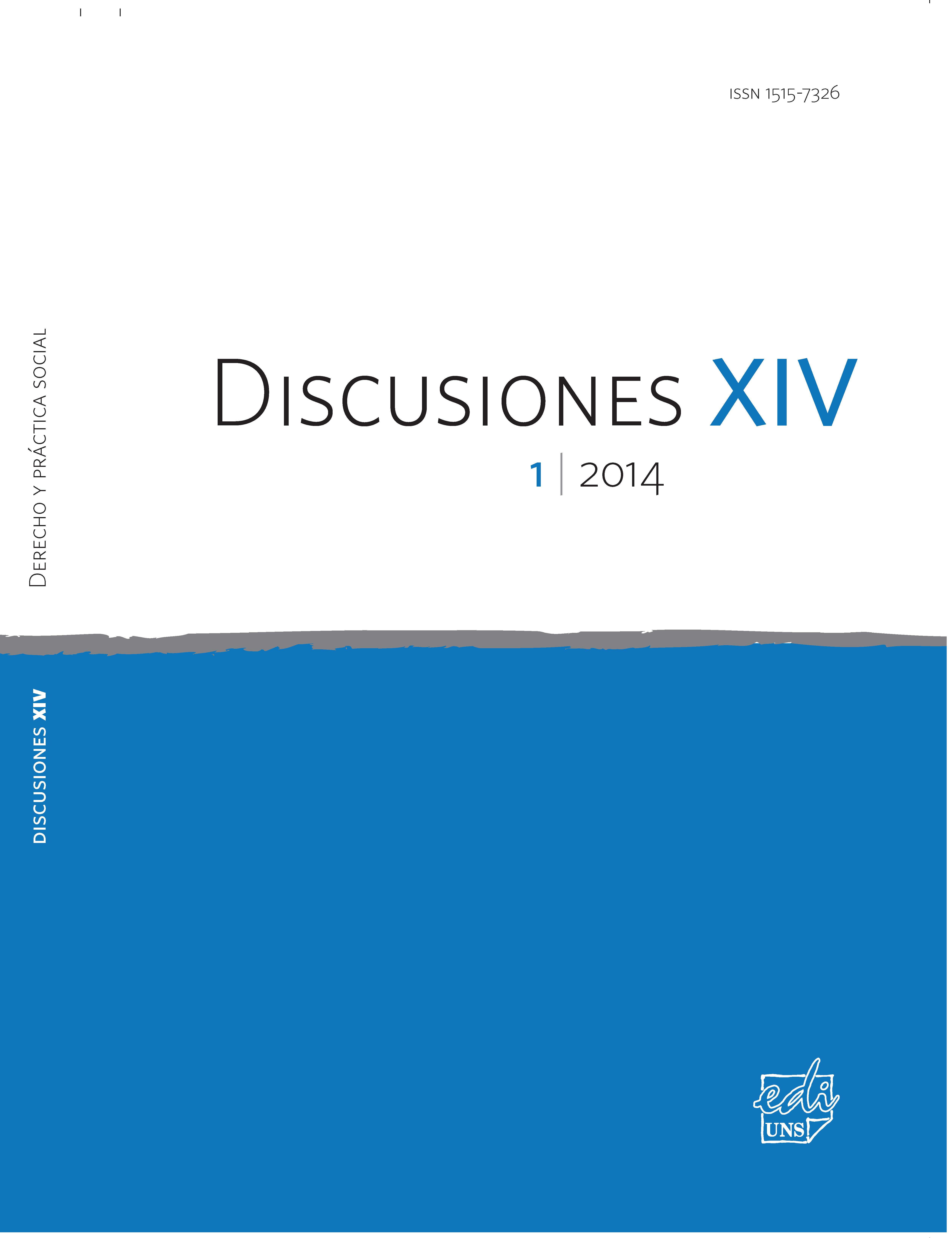
Law and Social Practice
Vol. 14 No. 1 (2014)This issue welcomes a debate on the social ontology of law. This is a debate generated by Carlos Bernal's article "Austin, Hart and Shapiro: three variations around the law as an entity founded on social practice". This discussion shows that the debate basically concerns process-ontology. As an entity, or better, a set of entities, the law is ontologically different from the process that generates it. So if we want to inquire about the nature of law, we must distinguish the ontology-process from the ontology-result (or ontology-entity).
-
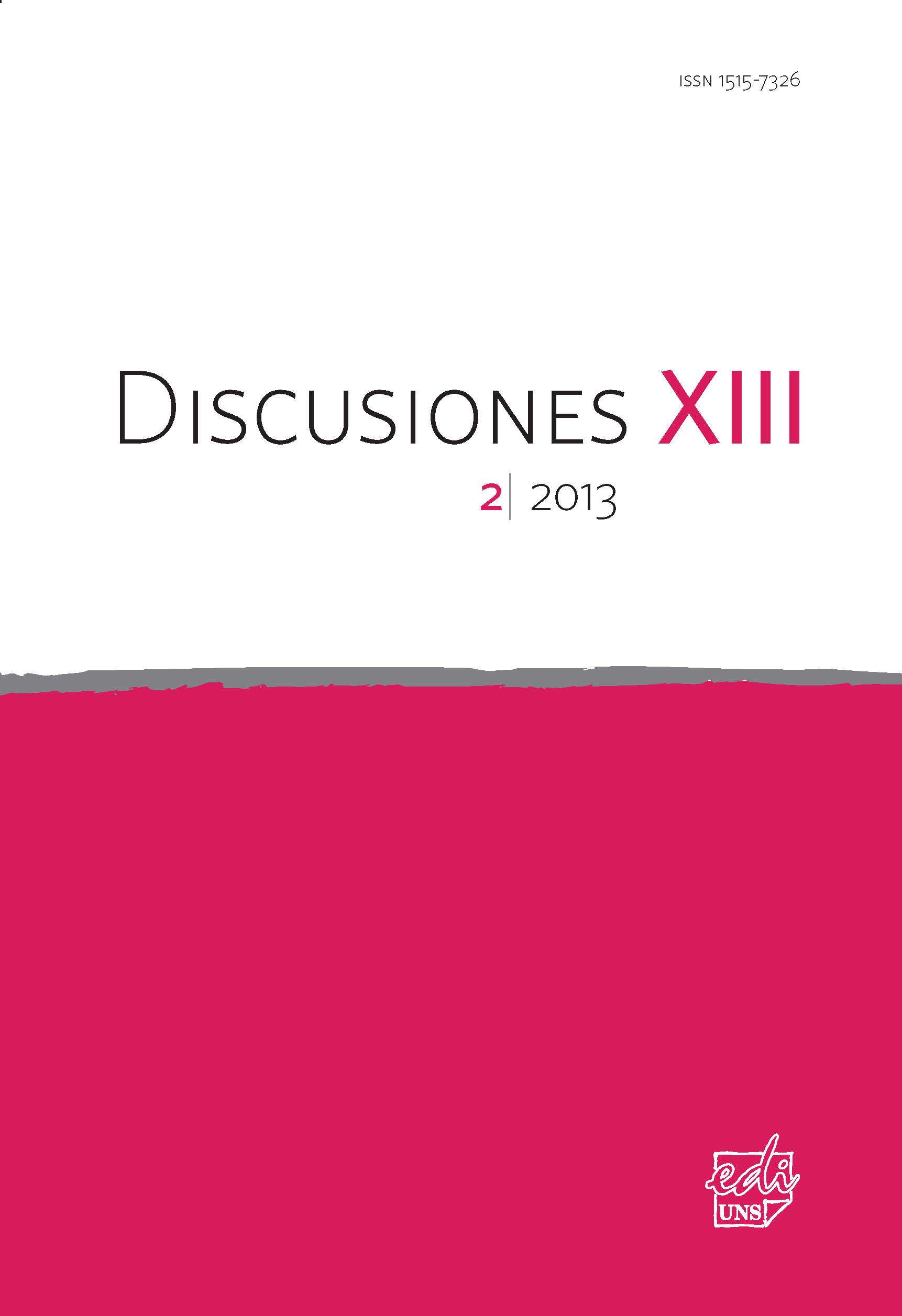
Willful Ignorance and Criminal Law
Vol. 13 No. 2 (2013)In this issue of Discusiones the reader will find five works of high argumentative and analytical density on the doctrine of willful ignorance. It is well known among legal scholars that the attribution of responsibility involves identifying the content of the intentions and determining their relevance to the law. The attribution of criminal responsibility rests heavily on the assumptions of the analytical theory of law and in this sense manifests a constant concern regarding the content of thoughts and intentions (especially from its promise not to punish thoughts according to the known principle cogigationem poenam nemo partitur). That is why the relationship between "knowledge" and criminal responsibility is particularly questioned through the analysis of willful ignorance as a focal point of some problems of the attribution of responsibility
-
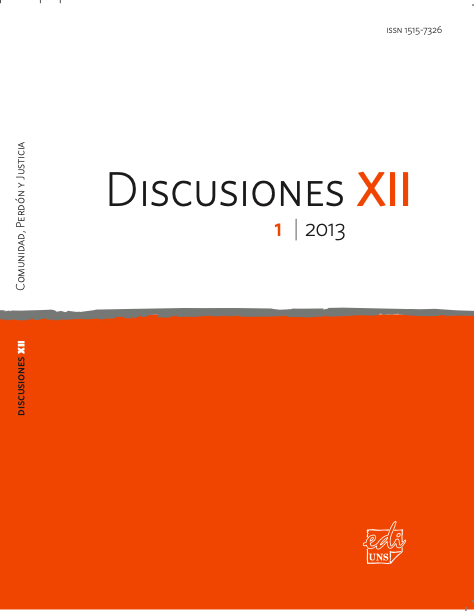
Community, Forgiveness and Justice
Vol. 12 No. 1 (2013)The words discussion, controversy, conversation, fit to a different extent in the exchange between Claudia Hilb and Diego Tatián published in this issue of Discussions. Hilb's text, How to Found a Community After Crime? Some reflections on the political nature of forgiveness and reconciliation, in light of the Juicio a las juntas in Argentina and the Truth and Reconciliation Commission in South Africa", was read and discussed at the National University of Córdoba in November 2010. There began the exchange with Tatián, whose text, now published here as “Founding a Community After Crime? Remarks on a Text by Claudia Hilb”, was read and discussed at a round-table with Hilb, at the III Meeting of research groups in Political Theory, held in the city of Córdoba in October 2012. The exchange ends with the response by Hilb "Remarks on Diego Tatián's Remarks".
-
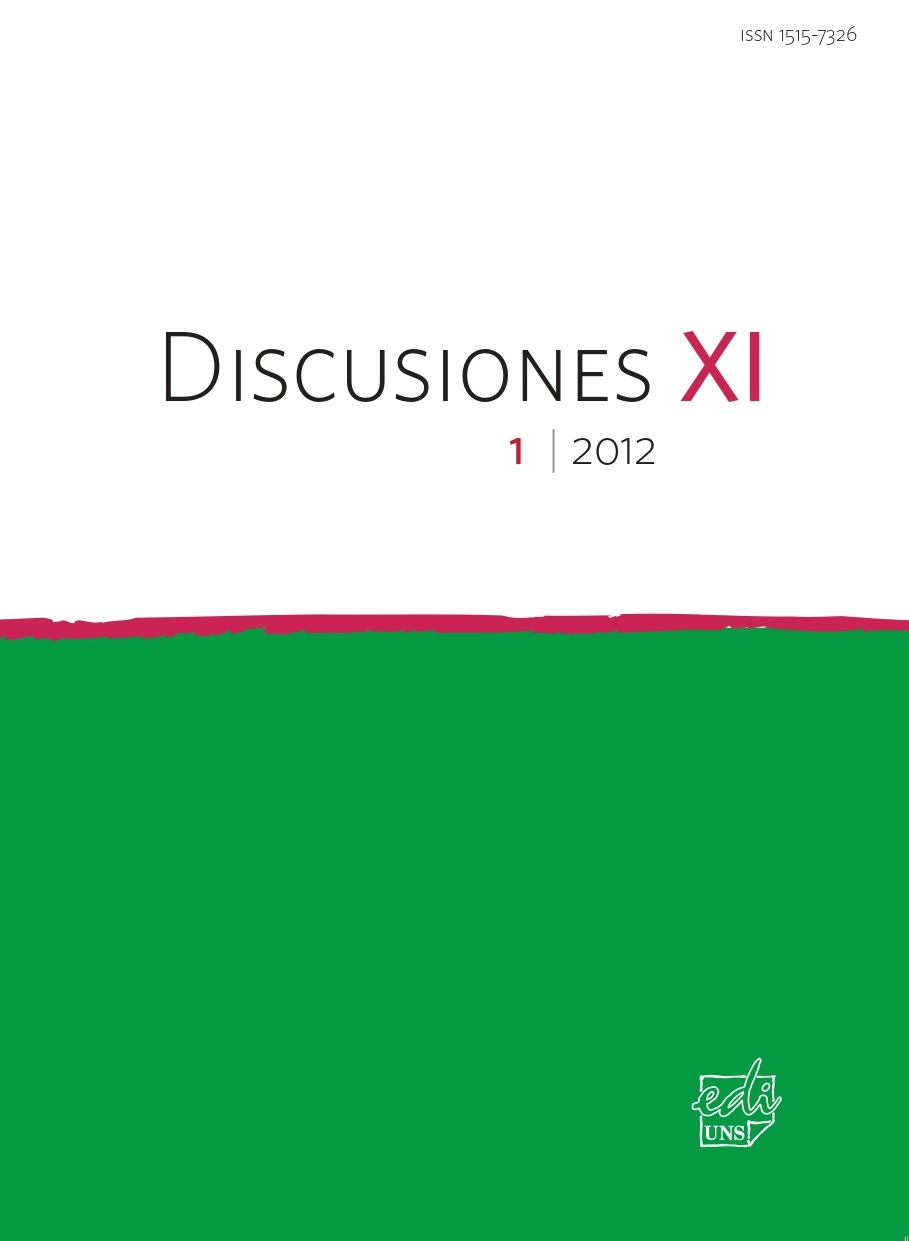
Scepticism in the Interpretation of Norms
Vol. 11 (2012)El escepticismo ante las reglas era considerado, al menos en ámbito jurídico, una teoría ya superada. En particular, se consideraba que, si entendido como la tesis según la cual “hablar de reglas es hablar de un mito”, en el sentido que el contenido del derecho no es otro más que el que le dan los jueces, el escepticismo ante las reglas sufría entonces de vicios que lo volvían insostenible. Esto llevó a los teóricos o bien a regresar a algún tipo de formalismo, i.e., el contenido del derecho está siempre determinado,o bien a abrazar alguna forma ecléctica o intermedia. En el trabajo que abre este número, Guastini se propone presentar una versión del escepticismo ante las reglas que evite algunas y supere otras de las dificultades que se le atribuían. En particular, intenta distinguirlo no solo del formalismo y de la teoría ecléctica, sino también de lo que suele ser llamado escepticismo extremo o radical; y es por ello que Guastini denomina “moderada” a la versión del escepticismo que defiende.

